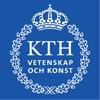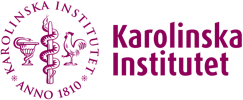Night at Alingsås hospital 2019-05-22
The clock is ticking away as Amina and Marcus arrive for the night shift at the surgery & palliative ward.
Shortly after taking a report from the evening shift nurses and administering medication to the patients, the nurses sit down in front of the TV to chat and relax. We are six people in the room, sitting in a circle. The ward is otherwise quiet and calm, quiet a big difference between the day time, when hallways are full of medical personnel, patients and visitors.
Our tasks at hand is to experience the ward at night, raise a few questions and most importantly, understand the perspectives of the nurses. Who are these dedicated professionals, who work at night? What can they tell us about the palliative patients, when the doctors are away? How are their perspectives, routines and needs different from the day?
“How long does it take to knit a sweater?,” asks Amina a nurse in order to get the conversation going. The night atmosphere is casual and informal, which is why it is important to start slowly and build trust. “About a week” she answers with a soft smile. Alarms beep here and there as the night staff attends to the patients’ needs. We follow after these night keepers, trying to observe and learn from them. It is a quiet night according to the staff. Later towards the morning Marcus asks, “How long have you worked during night shifts?” “27 years” she says. Both her colleagues and I are astonished. “That’s a lot of sweaters” Marcus comments.
Marcus Bilgec & Amina Kadribasic
Night at Lerum municipality 2019-06-04
We’re almost halfway through the clinical immersion phase of the fellowship.
Today my team member Amina and I had an opportunity to shadow the on-call homecare nurses during their night shift. Stationed in the center of Lerum, the nurses receive all kinds of calls from family members, patients and assistant nurses working for different home care facilities throughout the municipality: Lerum center, Floda, Gråbo – wherever and whenever they needed support.
The shift started at 9:00 in the evenight and stretched until early in the morning at 7:00. A very interesting 10 hour shift full of visits, which ranged from giving medications to helping assistant nurses take care of people with terminal diseases. The purpose of our observation was to gain a better understanding of the night time and capture challenges and benefits of working night shifts. Having done observation at night, we knew that we would have more time to ask questions and learn.
The first visit was to help an elderly patient, starting dialysis treatment by connecting the person’s blood system to a dialysis machine to filter the blood from excess water, solutes and toxins. A nice example of a lifesaving invention.
The most memorable experience of the night was to witness the last few hours of a palliative patient’s life. She left just before sunrise while a dedicated and loving assistant nurse was by her side.
We learned a lot from this night.
Adnan Albuhtori
Team Gothenburg, CIF 2019





